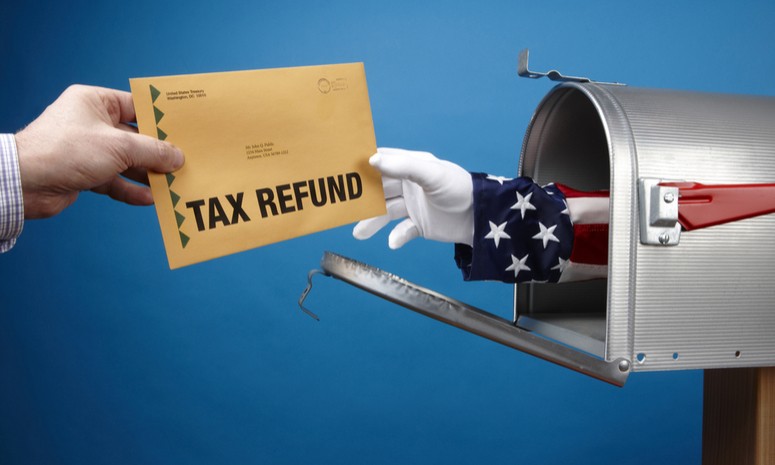
If you recieved a refund check from the IRS for filing your 2019 federal income tax returns, and you also received a stimulus check earlier this year, you may soon be three for three.
That is, you may soon get the interest you are owed for receiving your federal tax refund later than usual.
So if your interest on this interest is piqued, here are some answers to questions about when and how this money may arrive.
I might get a check for the interest owed to me for my tax refund? Why is this happening?
It’s related to the pandemic. You may get a tax refund interest payment check if your refund check came to you after April 15, which may well be the case. As you are probably well aware, the normal April 15 tax deadline was extended to July 15 due to the pandemic and its lockdowns.
The IRS is sending me a refund check for interest because I got a refund late? Is this normal?
It’s normal. The pandemic, of course, is unusual, but the IRS routinely sends out interest refund checks to taxpayers.
Daniel Laginess is a certified public accountant and managing partner at Creative Financial Solutions in Southfield, Michigan, a firm that specializes in accounting, wealth management and taxes.
Laginess says, “Typically, the IRS will pay interest on refunds issued 45 days after the April 15 deadline. However, this year the IRS will pay 5% interest compounded daily for refunds after April 15, and 3% interest compounded daily starting July 1. This is the case even for those that did not file their return until the extended deadline of July 15.”
Rafael Alvarez, CEO of ATAX, a national tax preparation and business services franchise, points out that the law requires the IRS to send out delayed refunds to taxpayers, and he adds that it is only fair that people receive interest when refunds come late.
“If you owe the IRS money and you don’t pay it, you’ll pay interest on what you owe. So it’s a rule that works both ways,” Alvarez says.
With all of that interest compounded daily, how much will I receive?
This will vary for each taxpayer, but the IRS states that the average refund is $18. So you’ll be lucky if your refund buys you dinner.
That said, the interest is much more generous than your average savings account. These days, you’re lucky to find an account offering 1%.
If the average refund is $18, why should I care that this interest check or deposit is coming?
Money is money, and maybe you’ll be one of the lucky ones and receive more than the average interest refund check.
Also, it isn’t every day that a check or deposit comes from the IRS, and given all the IRS-related scams out there, it might be helpful to know that if you receive money from the IRS, it’s real.
If you receive a check in the mail instead of direct deposit, the check will have a notation on it that says “INT Amount.”
Perhaps most importantly, the reason you’ll want to take particular note of this micro-windfall is that this refund is taxable. You will want to report the amount of any interest refund check you receive on your 2020 federal income tax return next year when you file your taxes in 2021.











